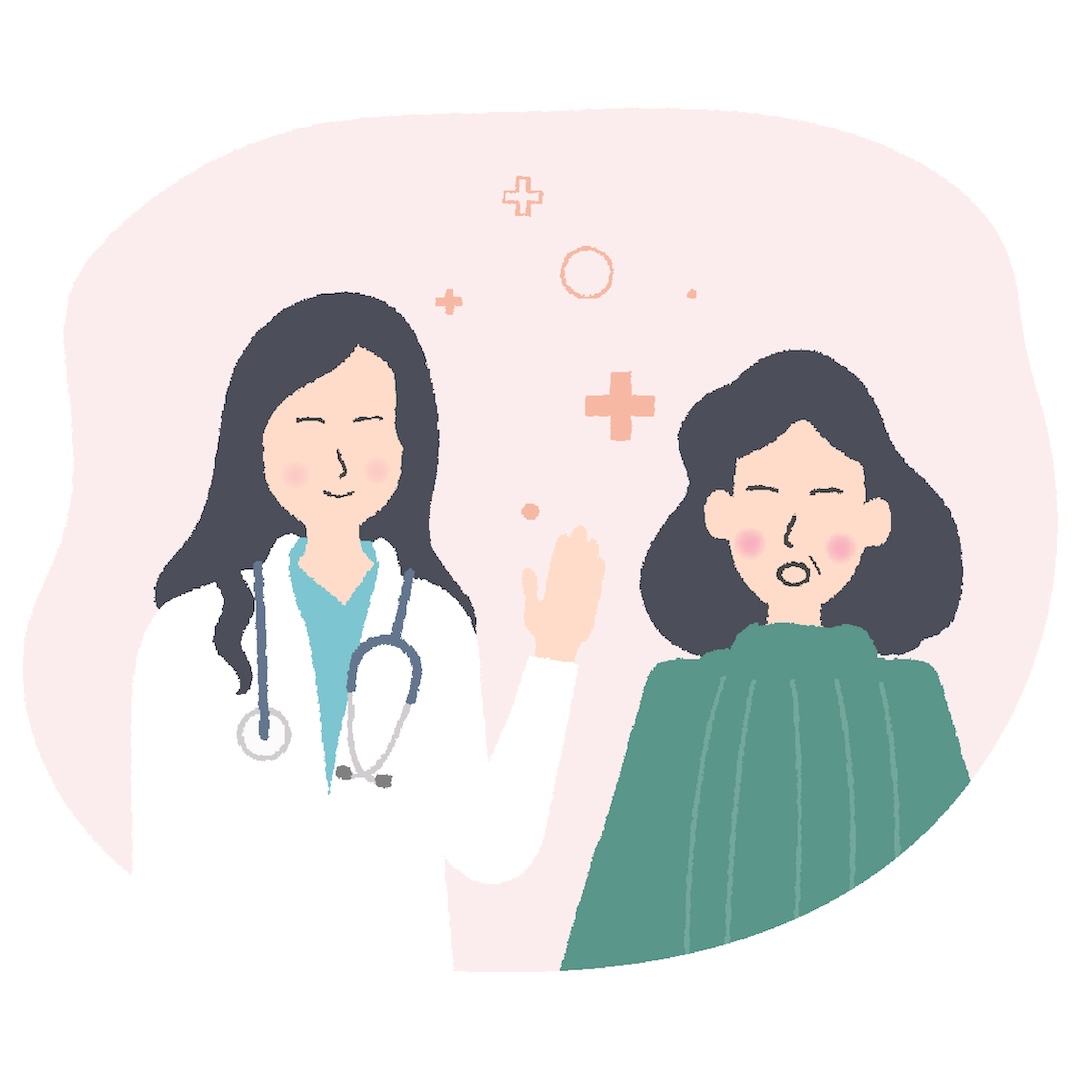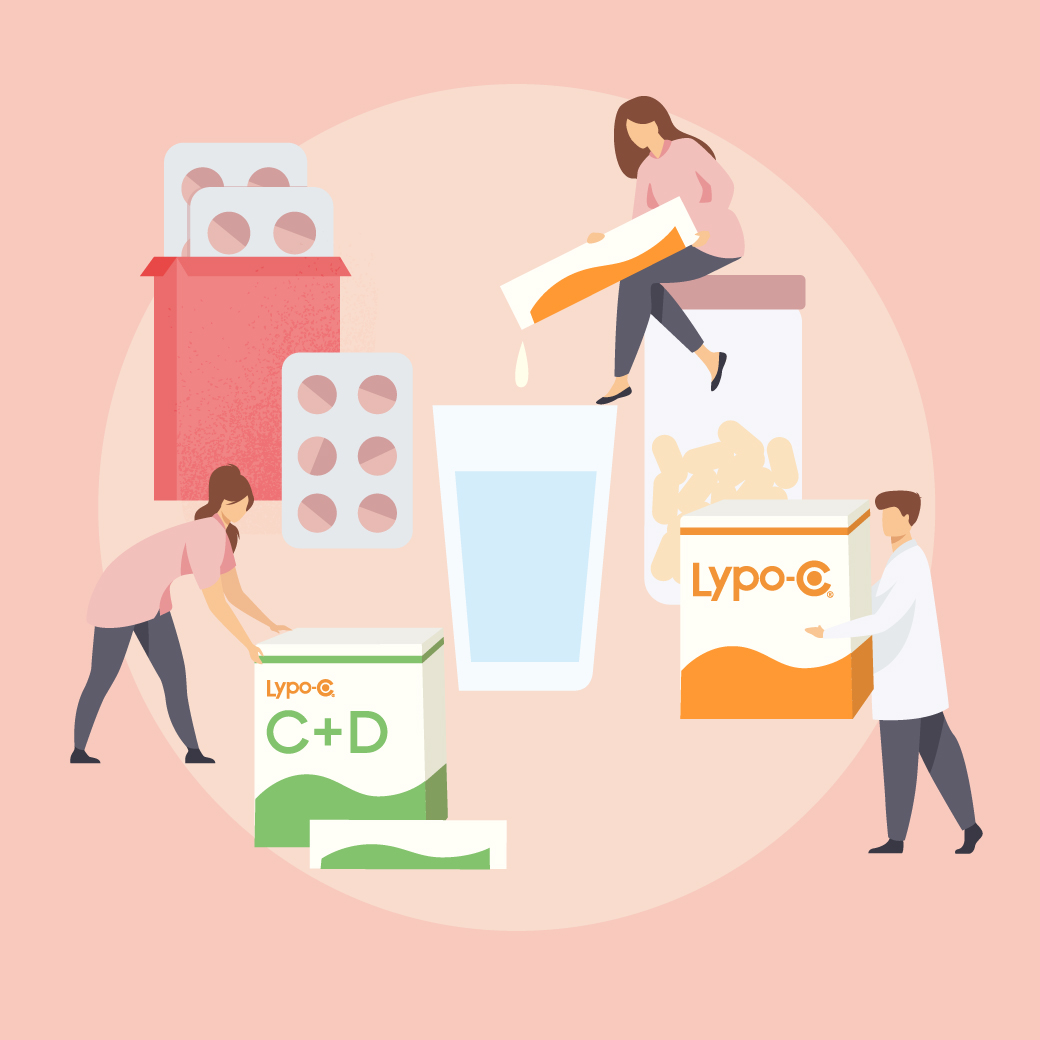
Prepare for menopause with Vitamin D
SUMMARY
- ・Basic knowledge about menopause
- ・Menopausal symptoms
- ・How to deal with and treat menopausal symptoms
- ・Eating habits and the importance of Vitamin D
- ·summary
All women will experience menopause.With the average life expectancy of Japanese women approaching 90 years, menopause is merely the halfway point of life. Getting through this period well is an important point in extending your healthy lifespan. We askedDr. Noriko Oshima, gynecology consultant at Creage Tokyo Ladies' Check-up Clinic,about the basics of menopause and how to prepare for it.
Basic knowledge about menopause
Menopause refers to the five years before and after a woman's menopause. The age at which menopause occurs varies from person to person, but on average it is around 50 years old. Many women experience menopause between the ages of 45 and 55. During this period, various symptoms appear, and those that are clearly not caused by other illnesses are called "menopausal symptoms," and those that interfere with daily life are called "menopausal disorders." There are various signs that can signal the onset of menopause, but irregular menstruation is one sign. It is said that in many cases the menstrual cycle becomes shorter.
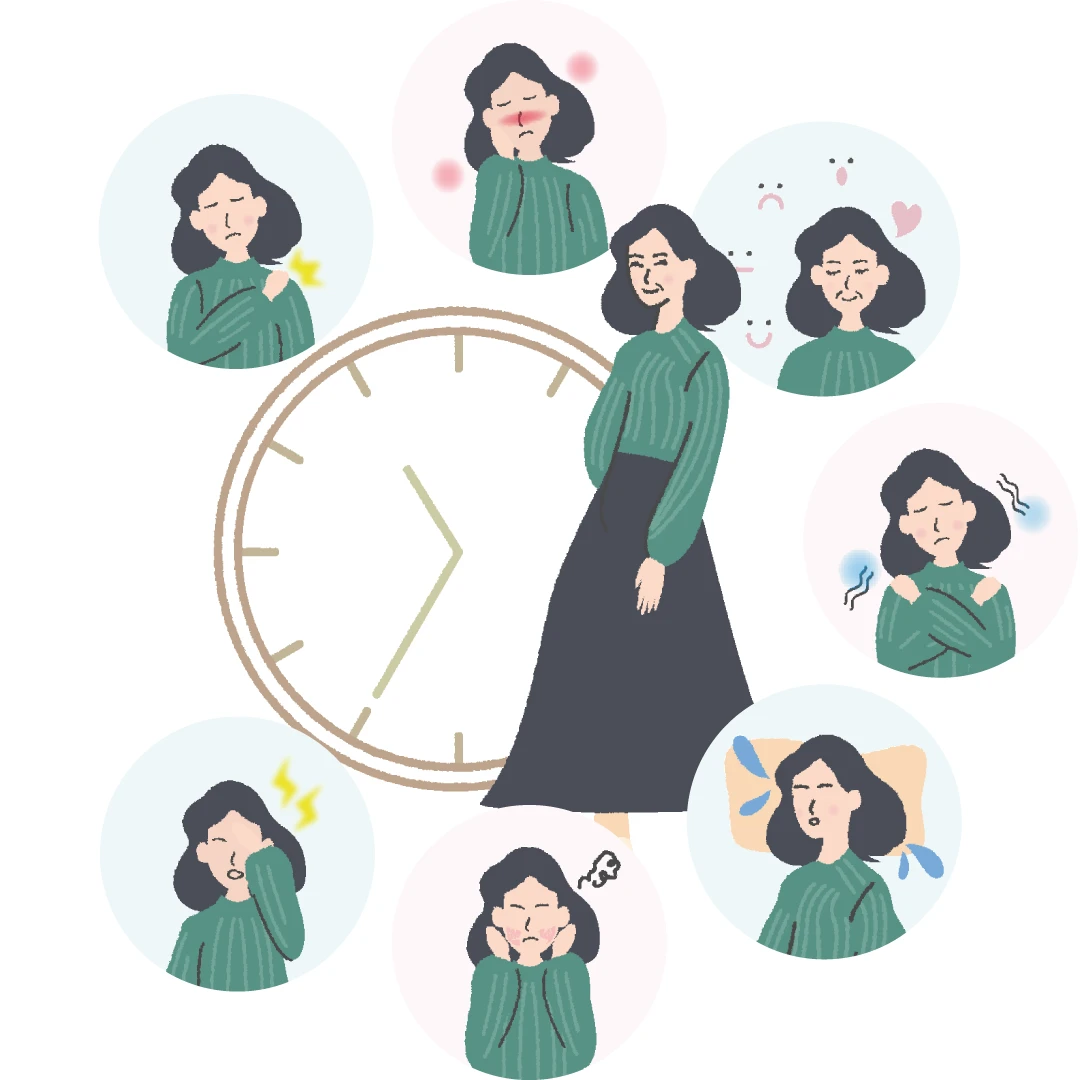
Menopausal symptoms
Symptoms vary, but include vasomotor disorders such as hot flashes, flushing, and sweating, as well as mental and neurological disorders such as irritability, anxiety, and insomnia. Other symptoms may include fatigue, stiff shoulders, lower back pain, headaches, and dry skin and mucous membranes.
There are diseases that are similar to menopausal symptoms, so it is important not to assume that every discomfort is a "menopausal symptom" but to get it checked at a clinic. What you thought was palpitations may actually be a thyroid disease. In order not to overlook any serious illnesses, be sure to get examined at a hospital or clinic first.
How to deal with and treat menopausal symptoms
Menopausal symptoms can be treated. Depending on the symptoms, hormone replacement therapy, such as oral medication, patches, and topical ointments (gels) covered by insurance, herbal medicine, psychotropic drugs, and counseling are available. For this reason, it is important to get into the habit of having gynecological checkups in your 20s and 30s and find a family doctor that suits you.
The importance of dietary habits and vitamin D
In preparation for menopause, one thing you can start doing right now is to review your diet. It is well known that it is important to take in a balanced amount of the five major nutrients: protein, minerals, vitamins, lipids, and carbohydrates, but one thing you should pay particular attention to is vitamin D.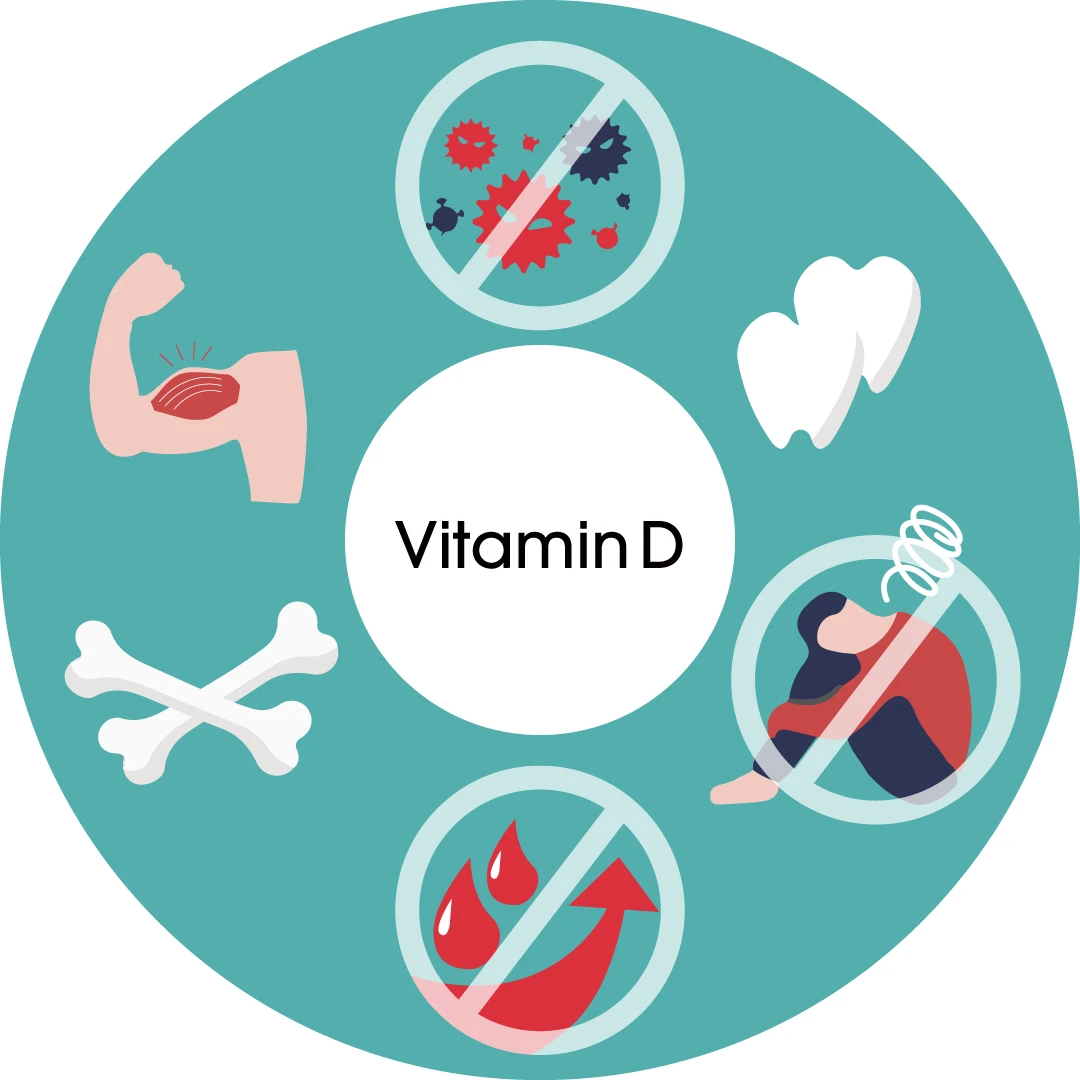
Vitamin D is a nutrient that helps with calcium absorption, strengthens bones and teeth, and regulates nerve transmission, muscle contraction, and immune function. Vitamin D can be produced in the body if you get plenty of sunlight, but many modern women are taking proper measures to protect themselves from UV rays and remote work has increased, so many people are deficient in vitamin D. According to actual data, the daily vitamin D requirement for adults is 8.5μg, but the average is 6.9μg.
It is difficult to get all the nutrients you need from food alone, so be sure to take supplements wisely. When choosing supplements, try to choose simple ones that do not contain additives or sweeteners.
summary
Menopause is a time that all women experience, so it's a chance to think about your life plan for the future. It may be a good time to reexamine your mind and body.By having the right knowledge,you can have a positive view of menopause.
Even now, reviewing your daily lifestyle habits and trying to maximize your health will help you prepare for menopause. I hope you will build your body as if you are saving up for your health in the future.
●Article supervision 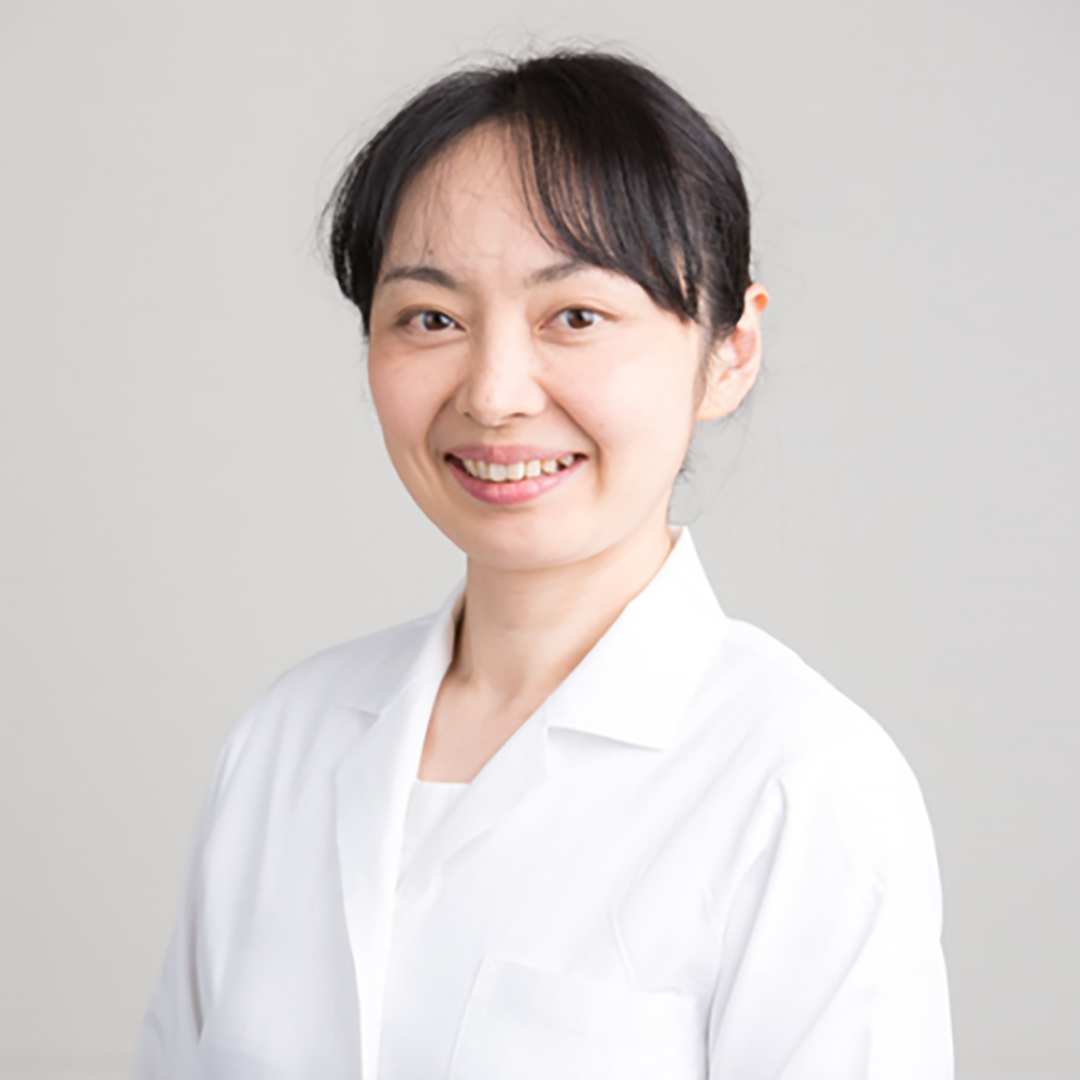
Gynecology consultant at Clairage Tokyo Ladies' Clinic
Professor Noriko Oshima
https://www.creage.or.jp/






